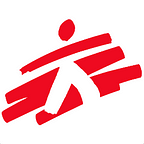Dear Kids: there’s homemade spaghetti sauce in the freezer! See you soon, Love Mom
Why I left my family to go help mothers in South Sudan
I first joined Doctors Without Borders in 2011, when my baby girl was just one year old. As a mother of three it was a difficult decision to leave my family for six weeks, but I knew my skills could go a long way in an area like southern Sudan.
It was easier for the little ones, they don’t really have a sense of time and just accept it as my job. But to my 15-year-old, six weeks was a long time, so it was a good chance for us to talk about the issues that girls not much older than her face in this context — it gave her the opportunity to be supportive on a different level.
South Sudan became the world’s youngest nation while I was there but it is also one of the least developed and health care options are few. Ninety-nine percent of all maternal deaths occur in developing countries; South Sudan has one of the highest maternal mortality rates in the world.
Everyone loves their baby as much as I love mine, I just do it in a completely different context.
Every day, women die from causes related to pregnancy and childbirth — severe bleeding, infection, pre-eclampsia — that can be prevented with treatment provided by trained medical personnel.
My husband is completely onboard. He says it is worth all of it, worth missing me, worth the angst that comes from me being away. Since my first assignment in 2011, I have been twice more to South Sudan and once to Nigeria. Before I leave, I cook a cauldron of spaghetti sauce. It is one less thing for my husband to worry about, but for my kids, the way their mom cooks is special. On the weekend, it’s mommy’s food: you only have to do that four or five times and then mommy will be home.
The last time I was in South Sudan, in February 2016, I lost a 19-year-old patient and her baby.
She was the same age as my eldest daughter.
Having the discussion with her mother about the complications was hard. It was her only daughter and the baby would have been her first grandchild; the joys and excitement that come with that — even in the middle of a civil war — translate across the board.
As a mother, I am constantly contrasting in my mind: the differences are stark, but the similarities are strong. It is important for me to take a step back and notice the joy. The culture is different, the context is different, but the joy of a new little loved one, of deciding who the baby will be named after, of taking a new baby home — it’s the same. Everyone loves their baby as much as I love mine, I just do it in a completely different context.
When I am in the field, I am often the only OBGYN in the project. I am on call 24–7, I even shower with my radio on.
Most nights I am called in, but some nights are so quiet it is scary. Perhaps it means everyone had a safe delivery and went home, but often it means road blocks, check points, instability, poor weather — or worse.
Before I leave, I cook a cauldron of spaghetti sauce. It is one less thing for my husband to worry about, but for my kids, the way their mom cooks is special. On the weekend, it’s mommy’s food: you only have to do that four or five times and then mommy will be home.
It is hard to tell when it was just a quiet night or if there are women bleeding on the side of the road that were unable to access care when they most needed it.
In contexts like South Sudan, where access to health care is limited, the health and the safety of the mother is what decides the health and the safety of her children. In the field you have to understand the consequences of your decisions within the context you are in. I must always consider what the risks and consequences of surgery will mean not only for the mother, but for her children at home.
Sometimes this means deciding that a C-section is not a viable option. That is one of the things that makes me go home and say, “I’m never doing this again; I’m never going to listen to a baby’s heart beat just fade away,” knowing that in a different context I would not have had to make that decision.
But, I always go back. It will always be a pull and tug, but as long as I can do what needs to be done then I will keep going back. I don’t need to do anything else except wash my hands and operate.
